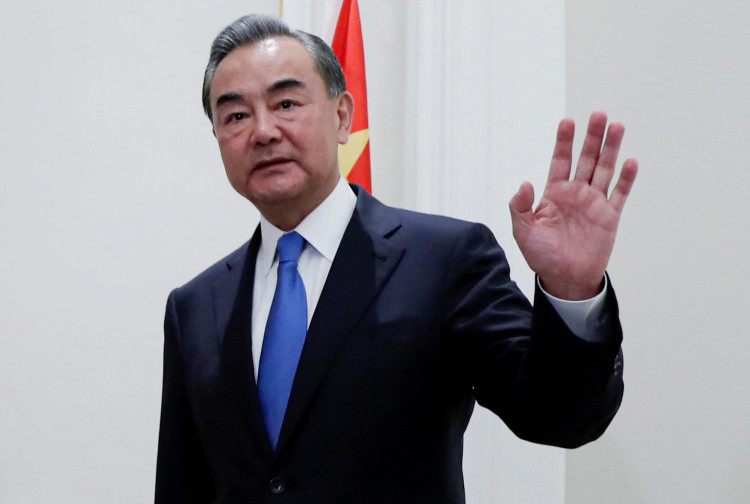China is taking another stab at peacemaking in the Middle East as foreign minister Wang Yi begins his six-country, weeklong tour.
China's Ministry of Foreign Affairs said Wang "will pay official visits to Saudi Arabia, Turkey, Iran, United Arab Emirates and Bahrain, and a working visit to Oman from March 24 to March 30."
These six countries are members of China's One Belt One Road initiative.
"State Councilor and Foreign Minister Wang Yi's visit to the Middle East demonstrates the importance China attaches to its relations with countries in this region and China's sincerity in deepening mutually beneficial cooperation," said foreign ministry representative Hua Chunying.
During the visit, Wang will discuss regional affairs and strategic issues, the One Belt One Road, COVID-19 and the post-COVID economic recovery.
Wang will push China's five-point plan, which he said aimed at realizing "regional peace and stability in the Middle East." He will also aim to "broaden China's circle of friends and upgrade ties with these countries," said Hua Liming, a former China ambassador to Iran.
"China wants to send a clear message to the U.S. that it remains a key player on the Iran nuclear issue and that it would be impossible to find a solution.. without China's involvement," according to Hua.
Upon his arrival in Saudi Arabia, Wang said China plans to invite Israeli and Palestinian "notables" to meet for peace talks in Beijing.
China is no stranger to the problematic Middle East. In 2017, it hosted a trilateral meeting with Israeli and Palestinian delegations, including both senior Palestinian Authority officials and senior Israeli officials.
China's intent to expand its role as a peacemaker is hamstrung by it not being a member of the Middle East Quartet, which includes countries and international organizations involved in mediating the Israeli-Palestinian peace process.
Western analysts said the real reason for Wang's tour is to secure supplies of oil to fuel China's recovery from the pandemic.
China's interest in the Middle East has historically been based almost entirely on oil. Six of China's top 10 sources of oil imports are Middle Eastern countries, with Saudi Arabia topping the list.
China remains the largest trading partner of the Arab states. They're cooperating in new technologies such as 5G, artificial intelligence, aviation and aerospace.






